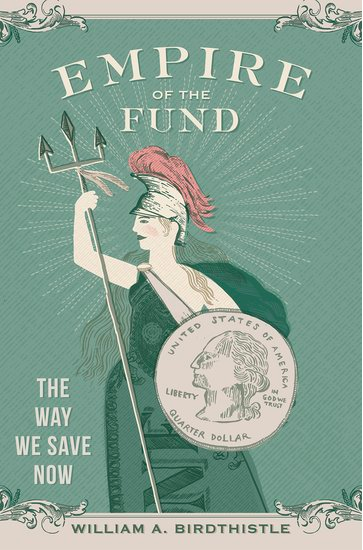Talking to William Birdthistle About ‘Empire of the Fund’

Good news, Billfold Book Clubbers — as promised, I was able to talk with author William A. Birdthistle after our book club discussion of Empire of the Fund, and ask him the most important question I had after finishing the book: what should ordinary investors do after learning that nearly all of the investment models available to them have significant problems?
“I can’t actually tell you,” Birdthistle said, “because I’m not licensed to give financial advice. I can, however, answer the question what would I do?”
Birdthistle explained that he would follow the type of prudent financial advice that has stood the test of time:
- Invest in broad-based, passively managed index funds that charge as little as possible
- Don’t touch those investments for 20-40 years
“In many ways, the recent passing of John Bogle is a celebration of this advice,” Birdthistle said. “The index fund is simple, elegant, and extremely powerful.”
How can investors reconcile the “don’t touch those investments” advice with the equally valuable advice to reallocate their investment risk over time? Target-date funds.
“Yes, I critique target-date funds in the book,” Birdthistle said. “But that’s less about how they’re not right for people and more about how to avoid being misled.”
Before investing in a target-date fund, Birdthistle suggests “looking under the hood” and analyzing what the fund is made of. A Vanguard target-date retirement fund, for example, consists of four index funds that cover both the domestic and international stock and bond market, and the percentages of the investment allocated to each fund adjust over time. A Fidelity target-date fund, on the other hand, is made up of a long list of different investments. These two target-date funds will have different performances over time as well as different expense ratios.
In the end, Birdthistle emphasized, what he would do would be to “follow the basic rules that people don’t want to acknowledge are right:” buy index funds, hold index funds, look for funds that offer the smallest expense ratios and lowest fees, and adjust the balance between bonds and equities over time.
I think many Billfold readers have already acknowledged that these rules are correct, but it was nice to hear William Birdthistle reaffirm them.
Support The Billfold
The Billfold continues to exist thanks to support from our readers. Help us continue to do our work by making a monthly pledge on Patreon or a one-time-only contribution through PayPal.
Comments